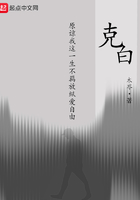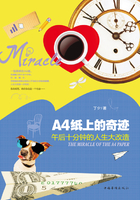The chronicles, when they speak of those summoned to these assemblies, briefly note the presence of all the citizens of a definite urban division. Expressions such as the following are also more than once met with in the course of the narrative: "the men of our land," "the whole land of Galich," and so on. Hence, it is evident that we have to deal with a thoroughly democratic assembly. But it does not follow that all the inhabitants of the city were summoned. The veche was not so much an assembly of the whole people as that of the heads of families, or rather of the natural chiefs of Slavonic house communities known to the earliest code of Russia, the pravda of Jaroslav, under the name of "verv."On several occasions the unknown authors of Russian chronicles seem to imply that the men assembled at the folkmote made certain engagements, not only on their own behalf but also on that of their children. For instance, "the men of Kiev, in folkmote assembled," declare in 1147, that they will fight against the House of Oleg, one of the branches of the dynasty of Rurik, not by themselves alone, but also by their children. This declaration clearly shows that children did not appear at a Russian folkmote, but that their absence was solely caused by their personal dependence on the head of the undivided family. We may, therefore, infer that all those who were not free to dispose of themselves were excluded from the veche; and such was the case as regarded certain members of undivided households and those who had forfeited their liberty through war or debt. In a society based, like the old Russian, on the principle of blood relationship, undivided households must have been numerous, and the fact that the heads of these households were alone summoned naturally diminished the number of persons composing the veche.
It may, therefore, be easily understood how a large square such as those on which the princely palaces of Novgorod or of Kiev were built, was quite able to contain an entire assembly, notwithstanding the fact that the citizens were not the only persons admitted to the meetings of the veche, for the suburbs and even the neighbouring townships had the right to have an equal share with them on the management of public affairs. The chronicles very often mention the fact of the "black people,""the smerds," and the so-called "bad peasants" (terms designating the agricultural population of the country) being present at the veche. The urban district was as a rule very large, the lands owned by the citizens in some cases extending to hundreds and even thousands of miles outside the city wall. In order to preserve these widely scattered possessions, the city often built fortresses, which in case of war offered a refuge to the inhabitants of the surrounding country. In time of peace these fortified places answered another purpose; markets were regularly held in them and hence in course of time artisans and merchants were induced to choose them for their settled abode. The population increased day by day, the fortress became surrounded by suburbs, and a new city appeared where originally there had been nothing but a wooden fence with a moat or ditch around it.
The inhabitants of this new city had generally the right to appear at the veches of the metropolis, but they usually preferred meeting at assemblies of their own. The roads being had and not always safe, they did not see what was to be gained by a long journey, but chose rather to stay at home and hold their own folkmotes from time to time.
The chronicles of Sousdal seem to imply that the decisions of the local folkmotes did not, as a rule, differ from those of the metropolis. "What has been established by the oldest city, is maintained by its boroughs." Such are the words in which the chronicle expresses the mutual relations of the metropolis and the daughter towns. The real meaning of the sentence is not at all that of dutiful subjection on the part of the new town towards the mother city. The writer merely wishes to suggest the idea of a good understanding between the metropolis and the boroughs it has built. This good understanding was not always maintained, and on more than one occasion the borough came to a decision the reverse of that of the chief city. A similar disagreement occurred more than once between different quarters (konzi) of the same city. Such was often the case at Novgorod, divided as it was into five different administrative districts or wards, which more than once held their own separate folkmotes and opposed the decisions of the general assembly. Such a misunderstanding sometimes ended in open war, the minority refusing to submit to the decision of the majority.
This fact alone shows that the Russian veches admitted no other mode of settling public affairs than that of unanimous decision. It has been already shown that this mode was general amongst Slavonic peoples. A few quotations will prove its existence among the Eastern Slavs. Whenever the chronicler has occasion to speak of one of their decisions he employs such expressions as the following: "It was established by all the oldest and all the youngest men of the assembly that," &c.; "all were unanimous in the desire"; "all thought and spoke as one man," &c.
If unanimity could not be arrived at, the minority was forced to acquiesce in the decision of the greater number, unless it could persuade the members of the majority that they were wrong in their opinion. In both cases the veches passed whole days in debating the same subjects, the only interruptions being free fights in the street. At Novgorod, these fights took place on the bridge across the Volchov, and the stronger party sometimes threw their adversaries into the river beneath. A considerable minority very often succeeded in suspending the measure already voted by the veche, but if the minority was small, its will had soon to yield to open force.















